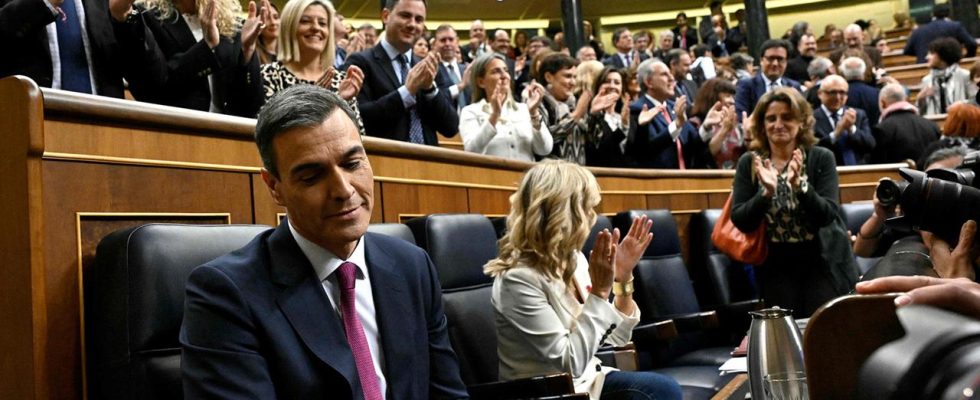Despite nationwide protests against the planned amnesty for Catalan separatists, Spain’s Prime Minister Sánchez wants to be confirmed in office. After long negotiations he has enough supporters.
It’s been almost four months since the Spanish parliamentary elections and there is still no new government. After election winner Núñez Feijoo from the conservative People’s Party failed in his attempt to form a government, acting socialist Prime Minister Pedro Sánchez will make his first attempt on Thursday. The debate on the new government is scheduled to begin today.
And it could work right away, because negotiations with other parties have been completed and Sánchez would then have the necessary votes. But the price is high: hundreds of Catalan separatists are to be granted impunity under a new amnesty law. The conservatives in particular are up in arms against this. They are seeking support in Europe and are organizing mass protests in Spain.
“Sánchez lied to us all”
“Long live Spain” the demonstrators chant. “A united Spain, mind you,” says pensioner Maria Fernandez. Like tens of thousands of other people, she and her family took to the streets in downtown Madrid to protest against the socialist Sánchez: “The majority wants Spain to remain united and we cannot tolerate anything else. Pedro Sánchez had said, “He won’t get involved with the separatists and now he has. He has betrayed us all.”
In order to get enough votes for re-election, Sánchez also has to rely on the votes of the parties that support independence from Catalonia. They have made far-reaching demands for their support: billions of dollars in debt should be forgiven. And hundreds of people who were convicted years ago for promoting the secession of Catalonia are now expected to go unpunished. With a new amnesty law.
Opposition wants new elections
The conservative opposition is up in arms and wants to use all means to achieve a new election. Members of Spain’s top judicial body want to take legal action against the law.
The deal that Sánchez made is a serious attack on the rule of law, says Isabel Díaz Ayuso. She is the regional president of Madrid and at the same time the female figurehead of the conservative PP party in Spain: “Pedro Sánchez provoked all of this because he didn’t get enough votes. That doesn’t correspond to the election results. He’s trying to legitimize something that isn’t legitimate . This leads us back into a dictatorship that we had actually left behind.”
The PP is exaggerating and is a sore loser, says political scientist Óscar Martínez Tapia. The Conservatives would continue to drive polarization in the country: “I would like to remind you that the amnesty is not an unconstitutional thing, it is nothing extraordinary in a democracy. Let us remember the acts of violence in Northern Ireland. It was also difficult for these criminals at the time Great Britain was given an amnesty. Impunity is also enshrined in the constitution and occupies a legal space there.”
“Heal conflict with Catalonia”
The Socialists also reject the accusation of buying votes and jeopardizing the country’s unity. In a press conference, Minister of the Presidential Office Félix Bolaños said: “This law has only one aim: to heal the wound in our country, the conflict with Catalonia. And to allow us to look to the future without distracting ourselves from it a crisis from which we in Spain have suffered for far too long.”
But the conservatives want to continue taking to the streets and have already turned to Brussels for help. Even if Sánchez would be officially elected into office on Thursday, there are still turbulent political times in Spain.

